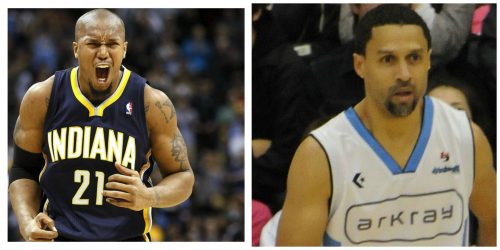[ad_1]
In recent months, Colin Kaepernick transitioned from headlines that praised his protest of the national anthem, to headlines that praised his charitable contributions. In addition to fighting famine in Somalia, he supported Meals on Wheels with $50,000 to assist the elderly in the U.S.
But Kaepernick isn’t the first athlete to use his [or her] power of celebrity to make a political stance or impact social good.
Mahmoud Abdul-Rauf, an NBA player for the Denver Nuggets refused to honor the national anthem during the 1995-1996 NBA season.
It all started on March 10, 1966, when Abdul-Rauf sat down in the middle of the anthem, stating that the American flag was “a symbol of oppression, of tyranny.”
Abdul-Rauf, a Muslim, also cited religious reasons for his rejection of the national anthem: “I’m a Muslim first and a Muslim last. My duty is to my creator, not to a nationalistic ideology.”
The NBA suspended him without pay – using a rule that requires players to “stand and line up in a dignified posture”during both the U.S. and Canadian anthem. In response, Abdul-Rauf decided to stand during the national anthem. But rather than place his hand on his chest, he held them up in prayer.
For the rest of his career, Abdul-Rauf endured great scrutiny and criticism for his activism. He ultimately left the NBA and closed his career by playing for a variety of international clubs.
But there are still current NBA players protesting – to this day.
David West, NBA veteran and current forward for the Golden State Warriors, has subtly protested the U.S. national anthem for years Long before Kaepernick took a knee, West stood (and continues to stand) last in line and two feet behind his teammates during the “Star Spangled Banner.” While Kaepernick’s protest sought to raise awareness on racial injustice in America, West explains that his reasons are much deeper:
“I can’t start talking about civic issues. I can’t start talking about civility and being a citizen if motherf——don’t even think I’m a human being. How can you talk about progress and how humans interrelate with one another when you don’t recognize our humanity? We got to somehow get that straight first so we’re on the same playing field. And that’s how I feel.”
But even David took a note from his athletic, activist-minded predecessors who used their position and influence to impact a variety of social issues during their lifetimes.
Paul Robeson, a former NFL player that retired to devote his career to the arts, also used his influence to impact social justice efforts. As a frequent speaker, marcher and avid activist in the 1940s, the State Department ultimately revoked his passport in response to his activism. In Robeson’s own words, “as an artist I [came] to sing, but as a citizen, I will always speak for peace, and no one can silence me in this.”
And, it wasn’t just the men who used the court, gym or camera to impart political knowledge on the masses — the women did so as well.
Althea Gibson, the first Black woman to compete on the world tennis tour and to win a Grand Slam in 1956, eventually became the New Jersey State Commissioner of Athletics. She set her sights high, later challenging Democrat Frank J. Dodd for the New Jersey Senate in 1977.
And there’s even more: Hank Aaron, Jackie Robinson, Wilma Rudolph – the list continues. Perhaps Kaepernick, Abdul-Rauf or West have a political career in their future? But even if not, we certainly appreciate their activism, support, and public protests today. #Salute.
Via Sports Illustrated and Fusion.
[ad_2]
Source link

